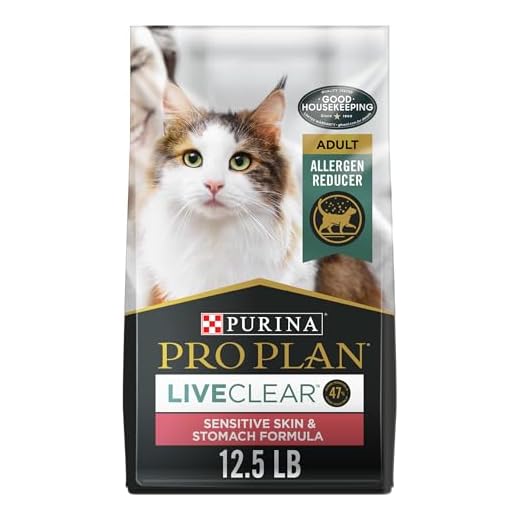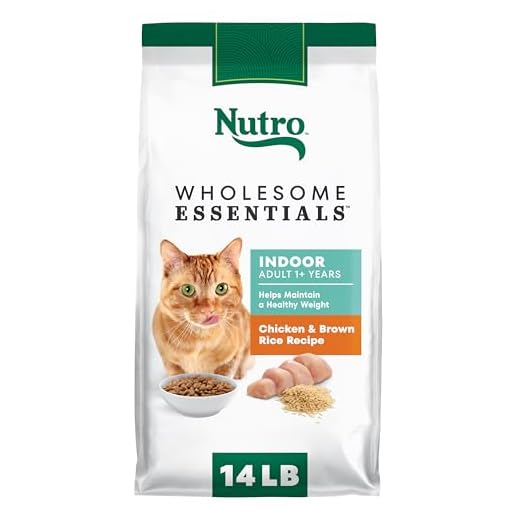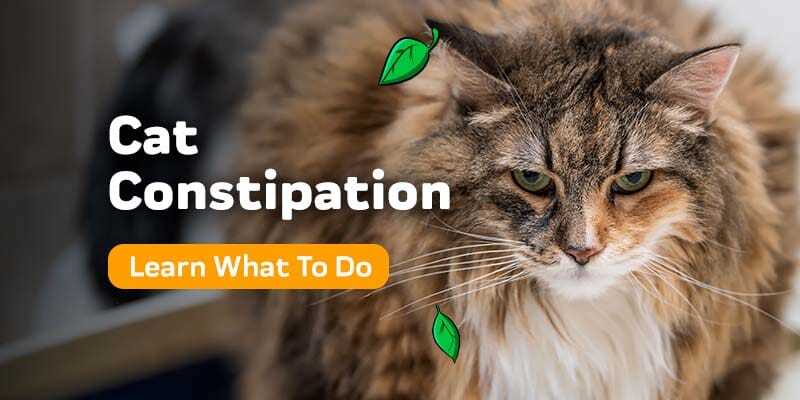



Incorporating the right plant-based elements into your pet’s diet is key for their health. This article outlines various options that can enhance the meals of your feline friend, ensuring they receive adequate nutrients while enjoying their food. Each suggestion is backed by nutritional information and health benefits.
Pet owners seeking to improve their cat’s diet will find this guide beneficial. It provides insights on safe grains that can be included in your pet’s meals, addressing common concerns about allergies and nutritional needs. Additionally, it discusses the importance of balanced nutrition and how to effectively integrate these ingredients into homemade or commercial diets.
From oatmeal to brown rice, this article reviews specific grains that are not only safe but also beneficial for your cat’s well-being. You will learn about their nutritional profiles, how they can support digestive health, and how to introduce them gradually. By the end of this reading, you’ll be equipped with practical knowledge to make informed dietary choices for your furry companion.
Best Choices for Feline Nutrition
Including wholesome carbohydrates in a pet’s diet can enhance overall health and energy levels. Certain plant-based options are beneficial and can be safely consumed by felines, providing necessary nutrients.
Oats stand out as a great option, offering fiber that aids digestion. They contain vitamins and minerals such as B vitamins, magnesium, and iron, contributing to a balanced nutritional profile.
Recommended Options
Several other alternatives also provide beneficial properties:
- Brown Rice: A digestible source of carbohydrates that can help maintain stable energy levels throughout the day.
- Barley: This grain offers a good amount of fiber and can assist in maintaining healthy cholesterol levels.
- Quinoa: A pseudo-grain rich in protein and amino acids, supporting muscle health and overall well-being.
When selecting these ingredients, it’s crucial to ensure they are cooked properly and served in moderation. Excessive amounts may lead to gastrointestinal discomfort.
Consult with a veterinarian before introducing new items to ensure they align with specific dietary needs. Each feline is unique, and individual requirements may vary.
Understanding Feline Nutrition Needs
High protein content is essential in a feline’s diet, as cats are obligate carnivores. This means their bodies are designed to derive most of their nutrients from animal sources. A diet rich in protein supports muscle maintenance, energy levels, and overall health.
Besides protein, healthy fats also play a significant role in a cat’s nutrition. These fats provide a concentrated source of energy and are crucial for skin and coat health. They also aid in the absorption of fat-soluble vitamins, which are vital for various bodily functions.
Key Nutritional Components
To ensure a balanced diet, consider the following components:
- Protein: Look for animal-based proteins like chicken, fish, or beef.
- Fats: Include sources such as fish oil or chicken fat to promote skin health.
- Carbohydrates: While not essential, moderate amounts can provide energy. Choose easily digestible options.
- Vitamins and Minerals: Essential for various bodily functions, ensure the diet includes necessary micronutrients.
Water intake is also critical. Hydration supports kidney function and overall health. Cats often don’t drink enough water, so incorporating wet food can help meet their hydration needs.
Always consult a veterinarian when making significant dietary changes, as individual needs can vary based on age, health status, and activity level. Tailoring nutrition to these factors contributes to a cat’s long-term well-being.
Whole Grains Suitable for Felines
Incorporating certain whole food sources into a feline’s diet can enhance their nutrition and overall health. While these furry companions primarily thrive on protein, specific carbohydrates can serve as beneficial supplements.
Oats represent a nutritious addition. Rich in fiber, they promote healthy digestion and can help regulate blood sugar levels. Additionally, oats provide essential vitamins and minerals such as B vitamins and iron.
Benefits of Various Whole Foods
Brown rice is another excellent option. This unrefined grain contains complex carbohydrates that offer sustained energy. It’s also a good source of selenium and magnesium, which support the immune system and muscle function.
Quinoa stands out due to its high protein content, making it a complete protein source. This pseudo-grain is gluten-free and packed with amino acids, vitamins, and antioxidants that can contribute to a healthy coat and skin.
- Barley: Known for its high fiber content, barley aids in digestion and can help prevent hairballs.
- Millet: Easily digestible and low in allergens, millet is suitable for sensitive felines.
While not every feline will benefit from these food sources, introducing them in moderation can provide a balanced diet when combined with high-quality protein. Always consult a veterinarian before making significant changes to a pet’s diet.
Benefits of Including Oats in Cat Diets
Incorporating oats into a feline’s nutrition offers numerous advantages. They provide a source of dietary fiber, promoting healthy digestion, which is beneficial for maintaining optimal weight and preventing constipation.
Oats are also rich in vitamins and minerals, such as B vitamins, iron, and magnesium. These nutrients support overall health, enhance energy levels, and contribute to the well-being of skin and coat.
Digestive Health
Including oats can improve gut health. The soluble fiber in oats helps regulate bowel movements and can alleviate issues like diarrhea. This is particularly useful for cats that may experience digestive upset from time to time.
Additionally, the fiber content can create a feeling of fullness, which may assist in weight management for overweight felines.
Nutritional Profile
The nutrient density of oats can complement a cat’s diet. They contain antioxidants that can bolster the immune system, helping to fight off illnesses. Regular consumption can lead to a healthier and more energetic pet.
Oats can also provide a moderate amount of protein, which is beneficial as part of a balanced diet. While cats are obligate carnivores, having a small amount of plant-based protein can be advantageous in small quantities.
Preparation Suggestions
When incorporating oats, it’s important to prepare them appropriately. Cooking oats can enhance their digestibility. Plain, cooked oats without added sugars or flavors can be mixed with other food or served as a treat.
Monitor your pet’s reaction to oats, introducing them gradually to ensure they adapt well to this addition. Always consult a veterinarian before making significant changes to a pet’s diet.
How Brown Rice Affects Cat Health
Incorporating brown rice into a feline’s diet can provide several health advantages. This whole grain is rich in fiber, which supports digestive health by promoting regular bowel movements and preventing constipation.
Additionally, brown rice serves as a source of complex carbohydrates, offering a steady release of energy. This characteristic can be especially beneficial for active felines, helping them maintain their energy levels throughout the day.
Benefits of Brown Rice
Brown rice contains essential nutrients that contribute positively to a cat’s overall well-being:
- Fiber: Aids in digestion and helps with weight management.
- Vitamins: Provides B vitamins, which are important for energy metabolism.
- Minerals: Contains magnesium and phosphorus, supporting bone health.
While including brown rice in a cat’s meals can be advantageous, moderation is key. Overconsumption may lead to digestive upset or an imbalance in nutrient intake. It is advisable to consult a veterinarian before making significant changes to a pet’s diet.
Quinoa: A Protein-Rich Grain Option
Quinoa offers a highly nutritious alternative that can enhance the diet of felines. This seed is celebrated for its impressive protein content, making it an excellent choice for adding essential amino acids to a pet’s meals.
Rich in vitamins and minerals, quinoa is not only a good protein source but also contains significant amounts of fiber and antioxidants. Its low glycemic index supports healthy digestion and may aid in weight management.
Benefits of Quinoa for Felines
- High Protein Content: Quinoa provides all nine essential amino acids, crucial for muscle maintenance and overall health.
- Rich in Nutrients: Loaded with vitamins B and E, magnesium, iron, and potassium, it contributes to various bodily functions.
- Gluten-Free: A safe option for pets with gluten sensitivities, making it a versatile ingredient.
- Supports Digestive Health: The fiber in quinoa can promote a healthy digestive system, aiding in regular bowel movements.
When incorporating this seed into a pet’s diet, it is important to prepare it properly. Quinoa should be rinsed thoroughly to remove saponins, which can impart a bitter taste. Cooking it until fluffy ensures that it is easily digestible.
As a protein-rich addition, quinoa can complement other ingredients in a feline’s diet, providing variety and enhancing nutritional value. Always consult with a veterinarian before making significant changes to a pet’s eating habits to ensure it meets individual health needs.
Potential Risks of Grain in Cat Food
Including cereal components in feline nutrition can lead to several health issues. While some manufacturers promote these ingredients as beneficial, they may not align with a cat’s dietary needs. Cats are obligate carnivores, which means their bodies are designed to thrive on animal-based proteins rather than carbohydrates.
One significant concern is the likelihood of food sensitivities or allergies. Many cats may experience gastrointestinal upset or skin issues when consuming diets high in grains. Symptoms can include vomiting, diarrhea, or itching, which often require dietary adjustments or veterinary intervention.
Health Implications
Another risk associated with a high grain diet is obesity. Excess carbohydrates can contribute to weight gain, as they provide calories without the necessary nutritional benefits. This can lead to further complications, such as diabetes or joint problems.
- Diabetes risk: High levels of carbohydrates can disrupt insulin sensitivity.
- Digestive issues: Cats may struggle to digest grains, leading to discomfort.
- Nutritional imbalance: Grain-heavy diets may lack essential nutrients found in animal products.
In conclusion, careful consideration is necessary when selecting food options that contain cereal ingredients. It is advisable to consult with a veterinarian to ensure that dietary choices support optimal health and well-being.
Choosing Grain-Free Alternatives for Sensitive Felines
Opt for protein-rich options that cater specifically to animals with dietary sensitivities. High-quality protein sources such as chicken, turkey, or fish should be at the forefront of any selection. Look for formulations that list these proteins as the primary ingredient, ensuring your pet receives the necessary nutrients without unwanted fillers.
Consider incorporating a variety of vegetables and fruits that provide essential vitamins and minerals. Ingredients like sweet potatoes, peas, and blueberries can contribute to a balanced diet while avoiding grains that might trigger sensitivities.
Recommended Alternatives
- Chicken or Turkey Meal: Concentrated protein source, rich in amino acids.
- Fish: Omega-3 fatty acids promote skin and coat health.
- Sweet Potatoes: Excellent source of fiber and vitamins.
- Peas: Provide plant-based protein and fiber.
- Blueberries: Antioxidants that support overall health.
Always transition to new diets gradually to minimize gastrointestinal upset. Monitor your companion’s response to any new food, and consult with a veterinarian if any adverse reactions occur. Following these guidelines will help ensure a smooth switch to grain-free options tailored to sensitive stomachs.
Best grains for cats
Features
| Part Number | 038100187246 |
| Model | 00038100187246 |
| Color | Other |
| Release Date | 2022-03-25T00:00:01Z |
| Size | 12.5 Pound (Pack of 1) |
Features
| Part Number | 18166315 |
| Model | 444207 |
| Warranty | With nearly 50 years of scientific research and observation, Royal Canin continues to deliver targeted nutrition to feed every pet’s magnificence. Not satisfied? Then neither are we. Our formulas are 100% satisfaction guaranteed. (Just contact us for more details.) |
| Size | 6 Pounds (Pack of 1) |
Features
| Part Number | 00017800191890 |
| Model | 00017800191890 |
| Color | Other |
| Release Date | 2022-01-21T00:00:01Z |
| Size | 22 Pound (Pack of 1) |
Features
| Part Number | 10123993 |
| Model | 10164256 |
| Color | Chicken |
| Is Adult Product | |
| Size | 14 Pound (Pack of 1) |
Video:
FAQ:
What grains are safe for cats to eat?
Cats are obligate carnivores, meaning their diet primarily consists of meat. However, some grains can be safe and beneficial in small amounts. Brown rice, oats, and barley are generally considered safe for cats. These grains can provide some fiber and energy, but they should only be offered as occasional additions to a meat-based diet, rather than as a primary food source.
How can I introduce grains to my cat’s diet?
If you decide to incorporate grains into your cat’s diet, it’s important to do so gradually. Start by cooking the grains thoroughly and mixing a small amount with their regular food. Observe your cat for any signs of digestive distress, such as vomiting or diarrhea. If they tolerate the new addition well, you can slowly increase the amount over time. Always prioritize high-quality, protein-rich foods, as grains should not replace essential nutrients in a cat’s diet.
Are there any grains I should avoid giving to my cat?
Yes, certain grains can be harmful to cats. For example, wheat and corn can cause allergic reactions in some cats and are not as beneficial as other grains. Additionally, processed grains and products containing high levels of sugar or artificial additives should be avoided. Always check the ingredient list on commercial cat foods and consult with a veterinarian if you have concerns about your cat’s diet.








